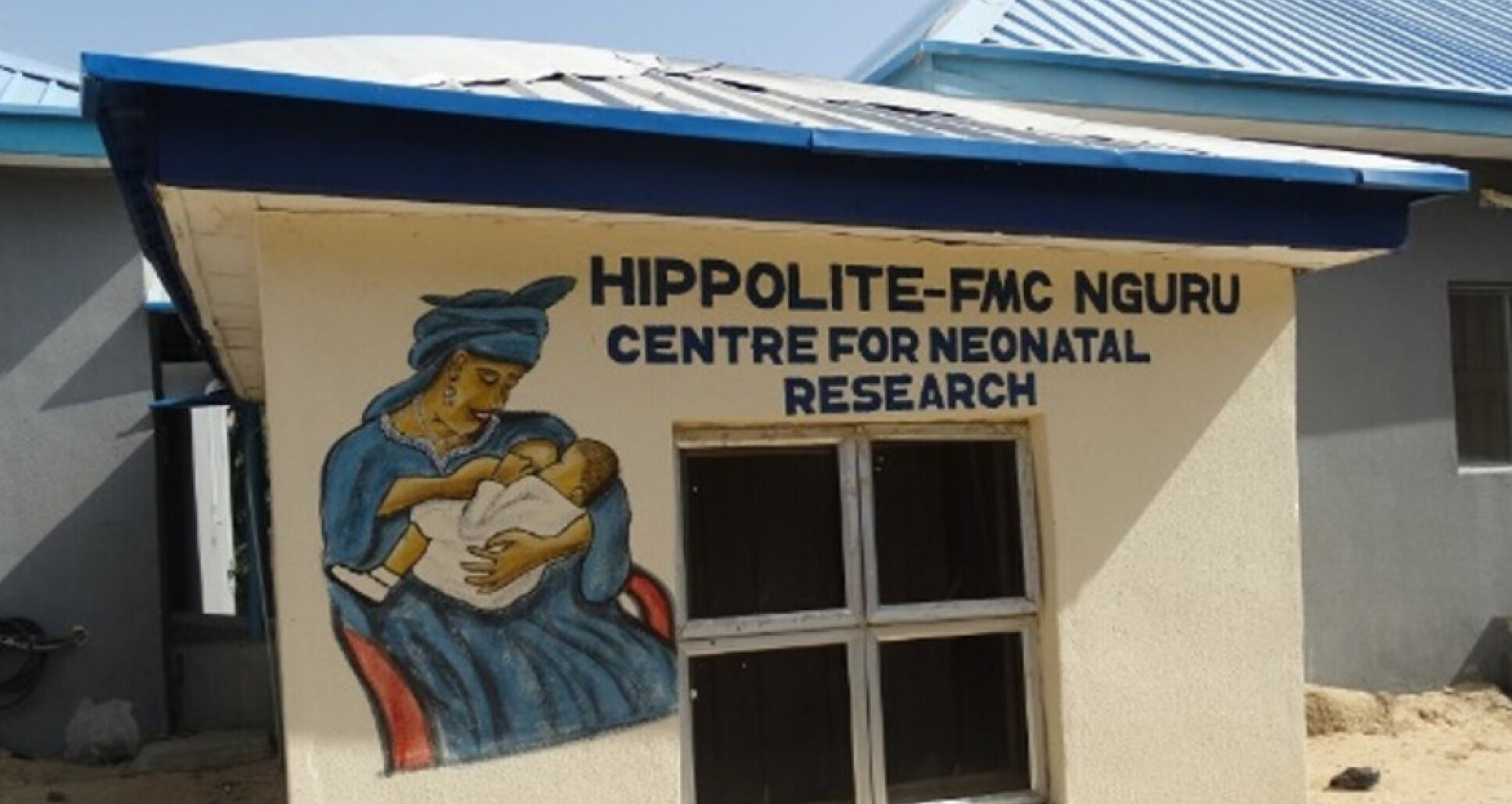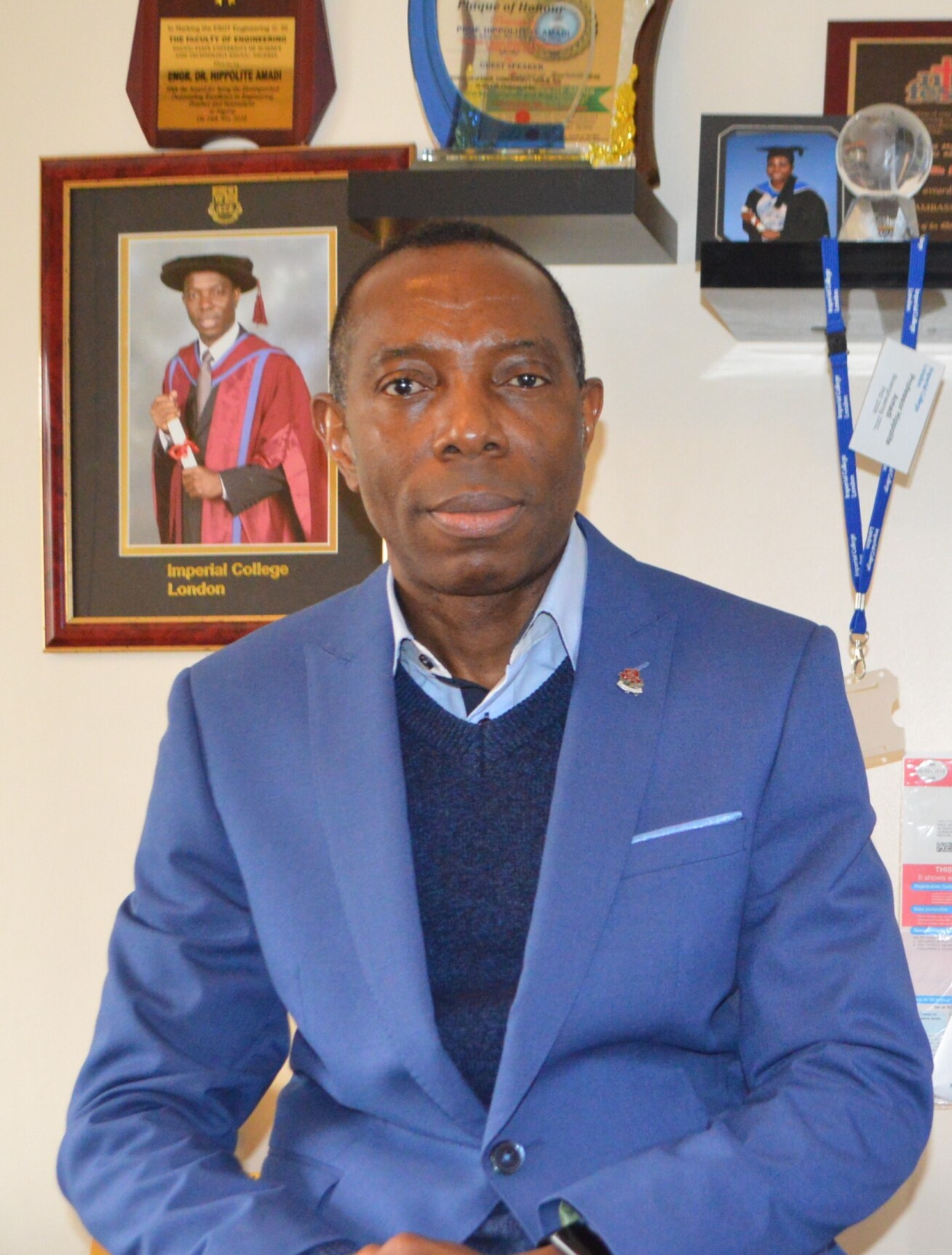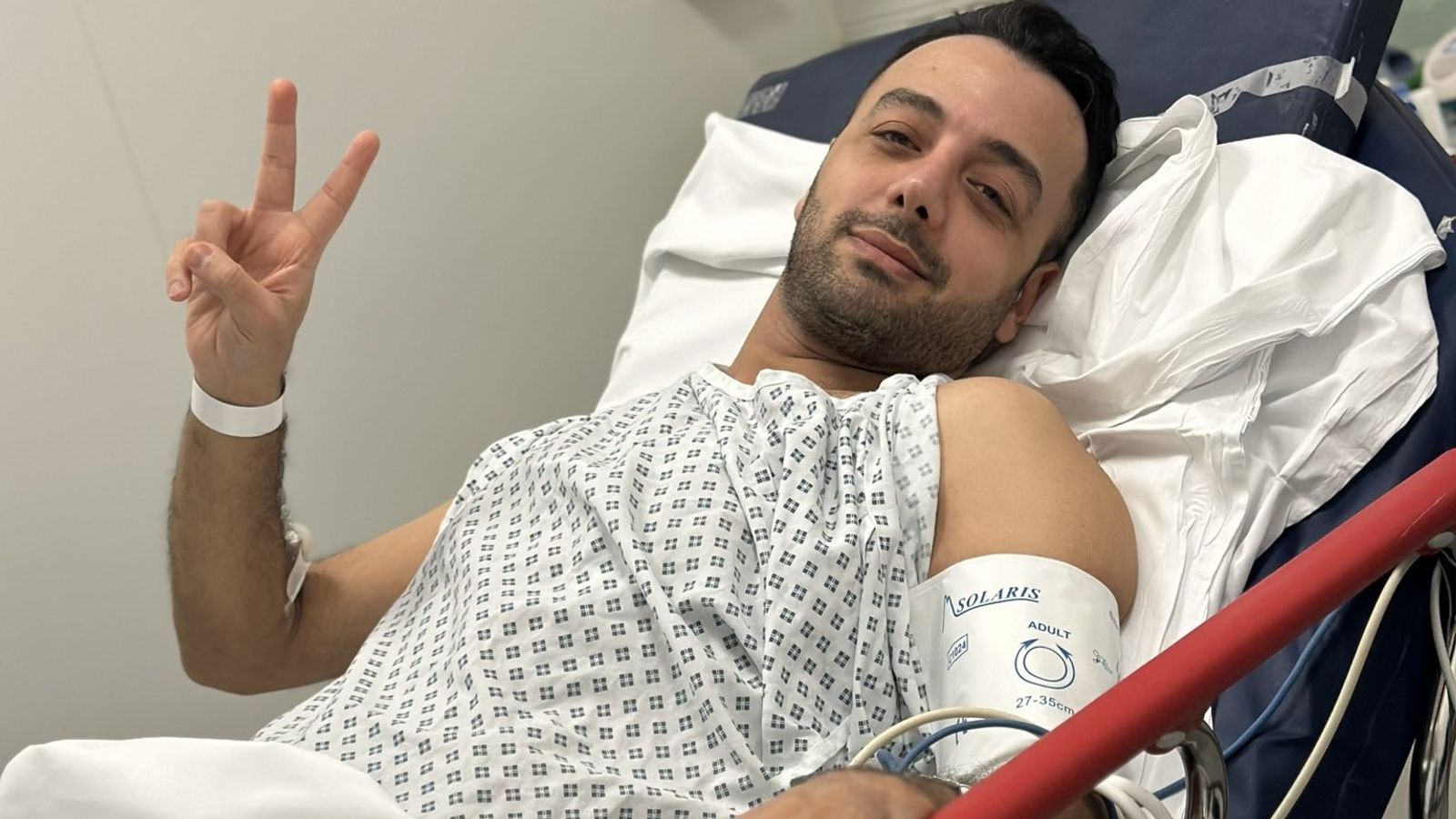
An Imperial pioneer of low-cost newborn care systems in Nigeria has won the Nigeria Science prize, with congratulations from the country’s president.
Imperial College London’s Professor Hippolite Amadi won the national prize, worth $100,000 USD, for his solar-powered non-invasive neonatal ventilator (NIV) – now considered the gold standard in the care of premature infants with respiratory distress syndrome.
He was awarded the prize during a ceremony in Lagos on 13 October 2023.
This significant work by this great Nigerian scientist will contribute to keeping more Nigerian children alive after birth and preparing them for a better future Bola Ahmed Tinubu (GCFR) President of the Federal Republic of Nigeria
Judges for the prize said Professor Amadi’s work had significantly advanced, and reduced the cost of, neonatal care in Nigeria and similar countries.
Professor Amadi, from Imperial’s Department of Bioengineering, said: “I am honoured to receive this award, but even more pleased to have helped improve access to effective healthcare for unwell newborns in Nigeria and other low- and middle-income countries.”
The President of Nigeria, Bola Ahmed Tinubu, commended Professor Amadi “for leveraging his extensive background in medical engineering and technology, with a special focus on affordable medical systems, for the betterment, progress, and benefit of Nigerians and humanity in general.”
A statement from his office said: “This significant work by this great Nigerian scientist will contribute to keeping more Nigerian children alive after birth and preparing them for a better future as positive change makers and influencers both at home and abroad.”
Helping newborns thrive
In 2008, 79 per cent of newborn deaths in Nigeria occurred within the first seven days of life, with 781 newborns dying every day by 2020.
Your unwavering commitment to advancing science and technology for the betterment of humanity has been exemplary. Nigeria’s Minister of Science, Technology and Innovation
The NIV delivers positive airway pressure ventilation for very-low-birth-weight newborns. Professor Amadi’s system is a lower cost alternative to similar techniques which are not always accessible in lower income settings.
Other innovations that won Professor Amadi the prize include an oxygen delivery blender system, which safely delivers oxygen without the danger of toxicity, and the oxygen splitter system, which allows one oxygen source to treat many premature babies at once when piped oxygen is not available. These innovations are also powered by solar energy, contributing to their low cost.

One of the Neonatal Centres set up by Hippolite in Nigeria
The devices, which are already available within Nigeria’s health system, treat premature newborns at a reduced cost of $984 USD, compared to around $8,500 USD for existing devices.
I am honoured to receive this award, but even more pleased to have helped improve access to effective healthcare for unwell newborns in Nigeria and other low- and middle-income countries. Professor Hippolite Amadi Department of Bioengineering
In his congratulatory letter to Professor Amadi, Nigeria’s Minister of Science, Technology and Innovation said: “Your unwavering commitment to advancing science and technology for the betterment of humanity has been exemplary. Your ground-breaking contributions to neonatal healthcare resonate deeply with our nation’s mission to enhance the health and wellbeing of our citizens, particularly the most vulnerable among us.”
Professor Amadi added: “The celebrated respiratory support devices are a subset of other seven assistive technologies of my wider Neonatal Rescue Scheme (NRS) for low-resource settings, which I have developed in the last 25 years.
“The next stage of my work has two dimensions: rolling-out statewide NRS projects which I hope will drastically reduce neonatal mortality in such states, and assisting Nigeria in capacity building and training young Nigerians, for the sustainability of these style of frugal neonatal interventions.”
An unchartered path

Professor Amadi
Professor Amadi’s medical engineering career has lasted over three decades, cutting across engineering in healthcare, orthopaedics, and paediatric research. His current practice spans across the whole of Nigeria, covering over 25 tertiary hospitals.
Having completed both his Master’s and PhD at Imperial, his role at Imperial as Visiting Professor now focuses on Frugal Medical Technology for low- and middle-income countries. His research group, called Neonatal Concerns for Africa, is a collaboration between Imperial and 25 Nigerian University Hospitals that aims to equip young Africans with the skills to create local medical technology within their environments that focus on the survival of newborns.
Professor Hippolite said: “My career has been quite dramatic as it has involved a largely uncharted path, which has now proven to be successful. I must now concentrate on consolidation, mentorship and capacity building for the health system of willing resource-constrained places around the world.”
This news story was adapted from statements from the Nigerian Science Prize’s Advisory Board, led by Professor Barth Nnaji, and the President’s Special Adviser on Media & Publicity.
The Prize is sponsored by the Nigeria Liquified Natural Gas (NLNG) company.
https://www.imperial.ac.uk/news/248493/nigerian-science-prize-presidential-honour-imperial




